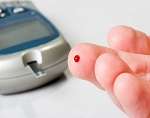Beets, also known as beetroot, are a vibrant root vegetable with a growing reputation for health benefits. Originally from the Middle East, they’re now enjoyed worldwide, and incorporating them into your diet can lead to noticeable changes in your well-being. Here’s a breakdown of what happens when you eat beets regularly, backed by scientific findings and practical considerations.
How Beets Impact Your Health
The key to beets’ health benefits lies in their unique nutritional profile, particularly their high nitrate content. These compounds undergo conversion into nitric oxide within the body, a molecule with far-reaching effects.
-
Improved Blood Pressure & Circulation: Nitric oxide relaxes and widens blood vessels, enhancing nutrient and oxygen delivery throughout the body. This effect can contribute to better cardiovascular health.
-
Enhanced Athletic Performance: Studies suggest that nitrates in beets can improve endurance and power output. They may increase the time before exhaustion during exercise, making them a natural performance booster.
-
Better Digestive Health: One cup of raw beets delivers nearly 14% of your daily fiber needs. Fiber promotes healthy digestion, regulates bowel movements, and contributes to a feeling of fullness, aiding in weight management.
-
Antioxidant & Anti-Inflammatory Support: Beets are rich in betalains, potent antioxidants that neutralize free radicals. Reducing oxidative stress can lower the risk of chronic diseases like heart disease, obesity, and certain cancers.
-
Heart Health Protection: Beyond blood pressure, beets contain betaine, an amino acid linked to lower homocysteine levels. High homocysteine is a risk factor for heart disease, making betaine a valuable component of a heart-healthy diet.
-
Potential Cognitive Benefits: Nitric oxide may also enhance brain function by improving blood flow to the brain, potentially aiding cognitive performance in older adults. While more research is needed, the initial findings are promising.
-
Liver Health Support: Beets can support liver function, particularly in individuals with non-alcoholic fatty liver disease (NAFLD). Betaine may protect against liver damage and improve overall liver health.
Nutritional Breakdown: What You Get in One Cup of Raw Beets
- Calories: 58
- Fat: 0.231g (0.30% DV)
- Sodium: 78mg (3.39% DV)
- Carbohydrates: 13g (4.73% DV)
- Fiber: 3.81g (13.61% DV)
- Sugar: 0g
- Protein: 2.19g (4.38% DV)
Beets are also a good source of potassium, folate, and vitamin C, all essential for various bodily functions. Potassium supports heart, muscle, and nerve function, while folate aids tissue growth and red blood cell production. Vitamin C is crucial for skin, bone, and teeth health.
Potential Risks & Precautions
While beets are generally safe, be aware of these potential issues:
- Kidney Stones: Beets contain oxalates, which can contribute to kidney stone formation in susceptible individuals.
- Stool & Urine Color Changes: Eating beets can temporarily turn stool red or urine pink/red. If this occurs and you haven’t eaten beets, seek medical attention, as it could indicate a more serious issue.
- Allergies: Though rare, beet allergies can occur.
How to Enjoy Beets
Beets are versatile and can be enjoyed in many ways:
- Roasted: Roasting beets brings out their natural sweetness.
- Boiled: A simple way to prepare beets for salads or side dishes.
- Raw: Grated or thinly sliced beets can be added to salads or juices.
Incorporating beets into your diet is a simple yet effective way to boost your health. From improved circulation to enhanced athletic performance, the benefits are backed by science and easily accessible through everyday meals.
By understanding both the advantages and potential risks, you can make informed choices about adding this vibrant root vegetable to your routine

































